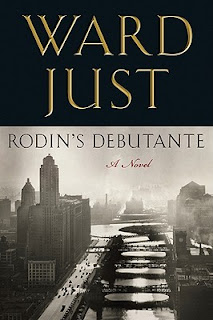...it was at that great moment in adolescence where you throw off what you think you ought to be and start imposing your true personality on the world, a moment of grace and strength and beauty and danger. ~ from The Brother Years by Shannon Burke
My 50th high school class reunion was to take place next month but was cancelled because of COVID-19. One of my friends suggested the class post their photos from senior year on the class Facebook page.
I was the first to share, a panorama photo of the senior class trip to Washington D.C. Classmates shared pics from the trip, Senior prom, and the school musical.
Something happened along the way. One classmate talked about her memories of the Vietnam war and civil rights movement, the Detroit riots, the protest sit-ins.
People talked about how they were not in the popular group, were outsiders looking in. They talked about their life after high school. And then, a girl talked about the anxiety that crippled her most of her life, how she hid it in school. We had thought she was popular, pretty, a golden girl.
Suddenly the barriers were falling down. Social class, academic standing, beauty, achievement, popularity were revealed to be false delinations that separated us.
So, here I am in life looking backward to adolescence, those horrible, difficult, eventful years, and I pick up
The Brother Years by Shannon Burke as if the stars had aligned to ensure I read this book at this time.
Burke writes about "the weird, poor family in the rich neighborhood' and how their childhood was a crucible that molds and toughens them. Central are brothers Coyle and Willie Shannon and the competition that makes Willie's life hell.
The boys' father strives for success, working multiple jobs and studying for a teaching degree. He works the sons as hard as he works himself, employing The Methods to toughen them for the world. The stress gives him a short temper and violent outbursts. Their mother is a housewife with a college degree who ineffectually tries to keep the peace.
Coyle's academic and sports achievements were a testament to his father's Methods. But there was always the awareness of being the poorest family in the rich 'hood.
...there was that familiar feeling of knowing there was something wrong with us--with our clothes or haircuts of the way we talked. ~from The Brother Years by Shannon Burke
Coyle's antithesis is the wealthy Robert. Willie aligns with Robert in his bid to get on the tennis team. Coyle accuses his brother of being a suck-up. Robert and Willie use each other for their own purposes. If that pisses Coyle off, so much the better.
Memories of a friendship with a rich friend came back. Dad was a blue collar worker and mom a housewife. We had what we needed, but my clothes were from KMart and our special eating out treat was buying 15 cent burgers from a local chain. At fourteen, I wore mom's hand-me-down swing coat and dated bathing suit with boy pants and a bra.
When I was a freshman, a girl took me up as a project, much like Emma took up Harriet in Jane Austen's novel. My friend was wealthy, had been to Europe, and lived in a posh house that her father had designed. Her parents had college degrees. She encouraged me to lose weight, flirt with boys, and become 'cool.' At least, cooler. In the summer I went to her house to swim in her built-in pool. Mom bought me a new swimsuit to wear.
One day this friend told me her mother thought I was not the right sort for her because of our economic status. I don't know if her mom really said that or if it was the start of my friend pushing me away because she soon took up another 'project.'
The energy it takes to rise above one's born class! It takes the Brennan dad years to get that degree. The boys had to be the best in everything to get into a top-notch college and to get the needed scholarships to afford it. Their childhood was brutal, the competition violent.
I was immersed in the story and the characters. The Brennan family is unforgettable.
Burke has given us a powerful coming-of-age novel, a story of class divide and what it takes to achieve the proverbial pulling oneself up by one's bootstraps.
I received a free ebook from the publisher through NetGalley in exchange for a fair and unbiased review.
Read an excerpt
here.
from the publisher
"In our family, there was none of this crap about everyone being a winner," says Willie, the narrator, who looks back on his teen years--and his nearly mortal combat with his domineering older brother, Coyle. In the Brennan house four kids sleep in a single room, and are indoctrinated into "The Methods," a system of achievement and relentless striving, laced with a potent, sometimes violent version of sibling rivalry. The family is overseen by a raging bull of a father, a South Side tough guy who knocks them sideways when they don't perform well or follow his dictates. Rivals, enemies, and allies, the siblings contend with one another and their wealthy self-satisfied peers at New Trier, the famous upscale high school where the family has struggled to send them. Evoking their crucible of class struggle and peer pressures, Burke balances comedy, tragedy, and a fascinating cast of characters, delivering a book that reads like an instant classic--an unforgettable story of the intertwining of love and family violence, and of triumphant teen survival that echoes down through the years.
The Brother Years
by Shannon Burke
Knopf Doubleday Publishing Group/Pantheon
Pub Date August 4, 2020
ISBN: 9781524748647
hardcover $25.95 (USD)
































